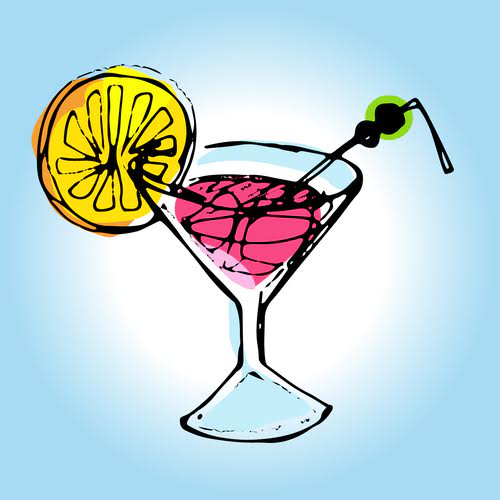We discovered that the national prevalence of those in recovery is approximately 9.1 percent, or 22.35 million U.S. adults. Nearly one in 10 persons in the U.S. has recovered or is recovering from a substance use disorder. Substance abuse treatment programs can help you develop a long-term, realistic treatment plan that gives you the tools, support, and structure you need to recover. Researchers say these hopeful findings are significant because they might inspire people to keep attempting recovery even after they endure multiple relapses. Research suggests they often thrive in long-term recovery, reconnecting with family and enjoying economic success.
#5: Give Back to the Community

Initially, he questioned whether the treatment was right for him, since he had never experimented with “hard” drugs such as meth or heroin. He worried he was taking someone else’s spot that needed it more. Before treatment, he was https://www.narcom.ru/cabinet/online/73-1.html taking a 30-day supply of Adderall in about a week and a half. His pursuit of drugs led him to a life of crime that landed him in jail. He had no idea that jail time would be one of the best things that ever happened to him.
To save lives, overdose antidote should be sold over-the-counter, advocates argue
“I have all the good things in life that everybody talks about,” he said. “I’m worthy of that too. Once you get to that place it’s pretty liberating.” “They fought to only keep me in [rehab] for 14 days; they didn’t want to pay for 30, and I knew that wasn’t enough for me,” Rasco recalled. “They didn’t want to http://onlinemusic.com.ua/malchik-s-peresajennymi-rykami-naychilsia-est-i-odevatsia put me in a halfway house. I knew I needed a half-way house.” “Hopeless despair — that’s a good way to describe it,” said 34-year-old Travis Rasco, who lives in Plattsburgh, a small industrial city in upstate New York. Recovery experts say one reason is the fact that addiction is agonizing and hard to treat.
Managing Stress in Life After Rehab
You may find it easier to tackle the most difficult one first, whatever works for you. When you wake up in the morning, remind yourself that you are on a positive new journey. This is an opportunity to grow and return to the things you used to love doing before you became addicted. You will need to avoid those places that trigger cravings such as bars where you used to drink, parks, and people’s houses. Complete the form and a treatment advisor will contact you at the number provided.
- But, it will definitely require time and patience on your part.
- Maybe you want to go back to school or you want to move up in your current career.
- Try volunteering, continuing education, or pursuing other rewarding hobbies for a new life that is good for you.
- The essential aspect of recovery is maintaining a positive state of mind.
- Every day on this side of the grass is a gift, and despite how one might feel in the first few weeks of treatment, it’s one that is deserved.
- During this step, the individual learns the importance of making up for harmful behaviors.
- Most available studies are observational rather than strictly controlled experiments, making it hard to say whether success is due to the program itself or other factors like individual motivation.
- Know that you aren’t required to disclose information as personal as your recovery.
- It is now well known that the repetition of rewarding behaviors produces changes in brain function and structure that facilitate habits and, for some, sustained compulsivity and addiction.
- Additionally, research also shows that changes in financial strain can also affect the addiction levels in adults, especially older men.
- Early in recovery, it’s normal for friends and family to maintain some healthy emotional distance from the one working towards sobriety.
Building a support network is crucial to maintaining sobriety during your recovery journey. Your support network may include support groups, new sober friends, and established loved ones. Whether it’s hiking, swimming, yoga, cycling, pilates, joining a gym, or a team sport, exercise can take things to a whole other level. Another reason to start exercising is to meet others dedicated to living a healthy lifestyle, which will help support your newly found healthy habits.

This neglect can have a cascading effect on their partner, who may need to shoulder a disproportionate share of household duties, childcare, and financial responsibilities. As addiction progresses, the addicted individual often becomes increasingly focused on their addiction, neglecting emotional engagements and connections with their partner. This withdrawal can https://meshiaak.com/2023/12/28/exploring-the-dark-side-of-entertainment-music manifest as a lack of interest in shared activities, decreased communication, and an overall reduction in emotional availability. Addiction is a pervasive issue that not only affects the individual but also deeply impacts their relationships with others. Understanding how addiction destroys relationships can help in addressing these issues more effectively.
- The tenor of relationships change after addiction, and it’s okay that they never go back to what they were before.
- These can be small goals, like attending a meeting every week or exercising regularly, or bigger goals, like going back to school or starting a new career.
- Staying up all night and sleeping all day, along with broken sleep throughout the night, did not help your health or mood.
- This isolation can also be imposed on their partners, where the addicted individual may discourage social interactions or behave in ways that make socializing difficult or embarrassing.
Set Realistic Goals
To stay persistent, you have to decide to stop addictive behaviors and choose a healthier lifestyle. Having practical goals in recovery has been shown to reduce substance use. Setting goals also allows the patient to see how far they have come in their recovery journey.

